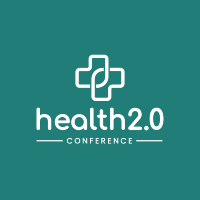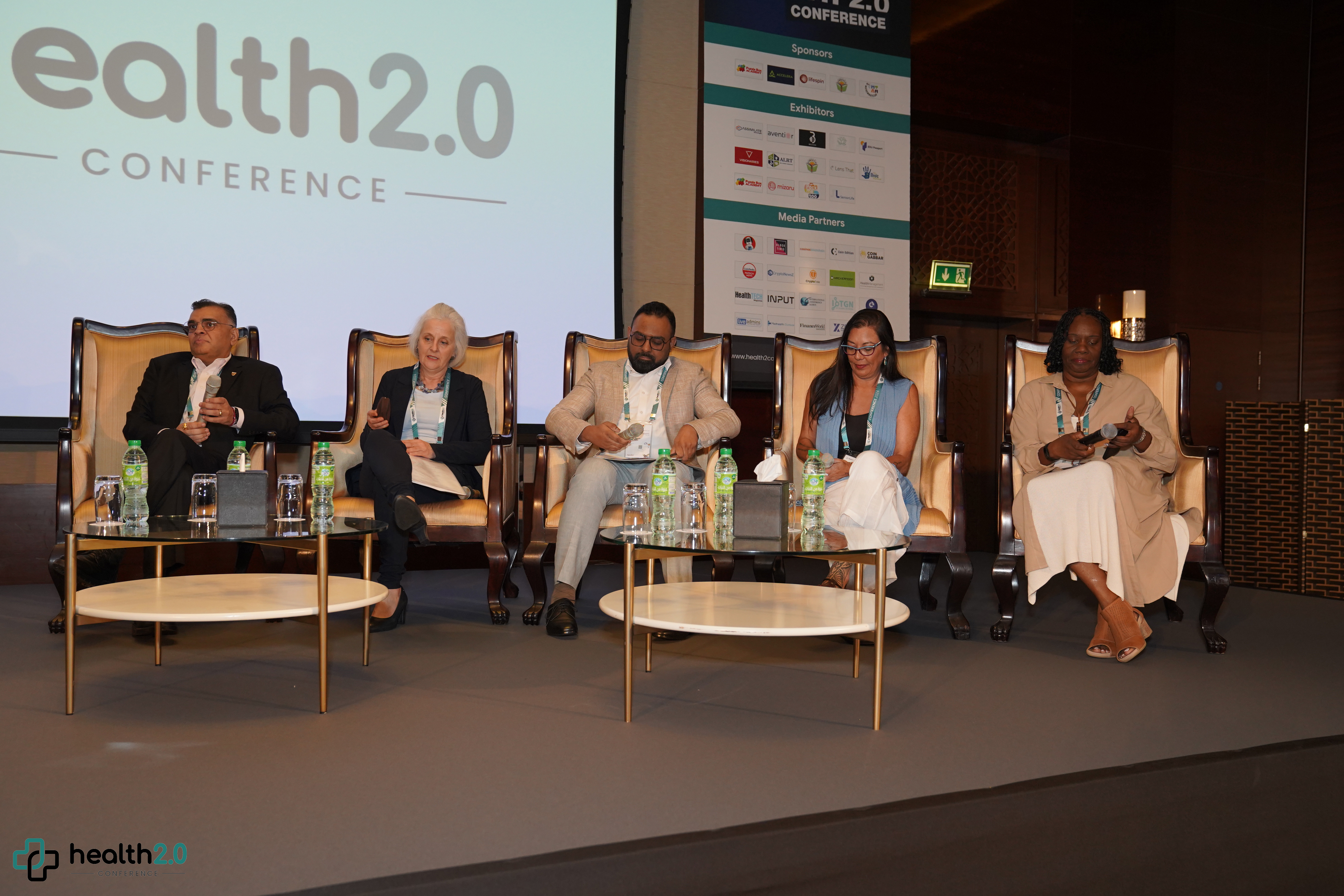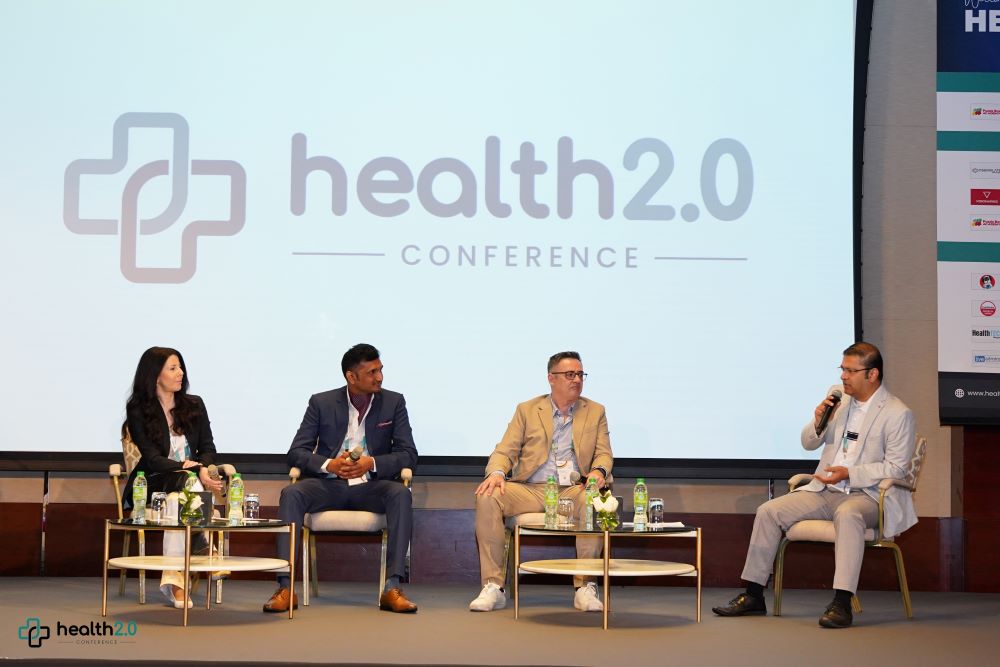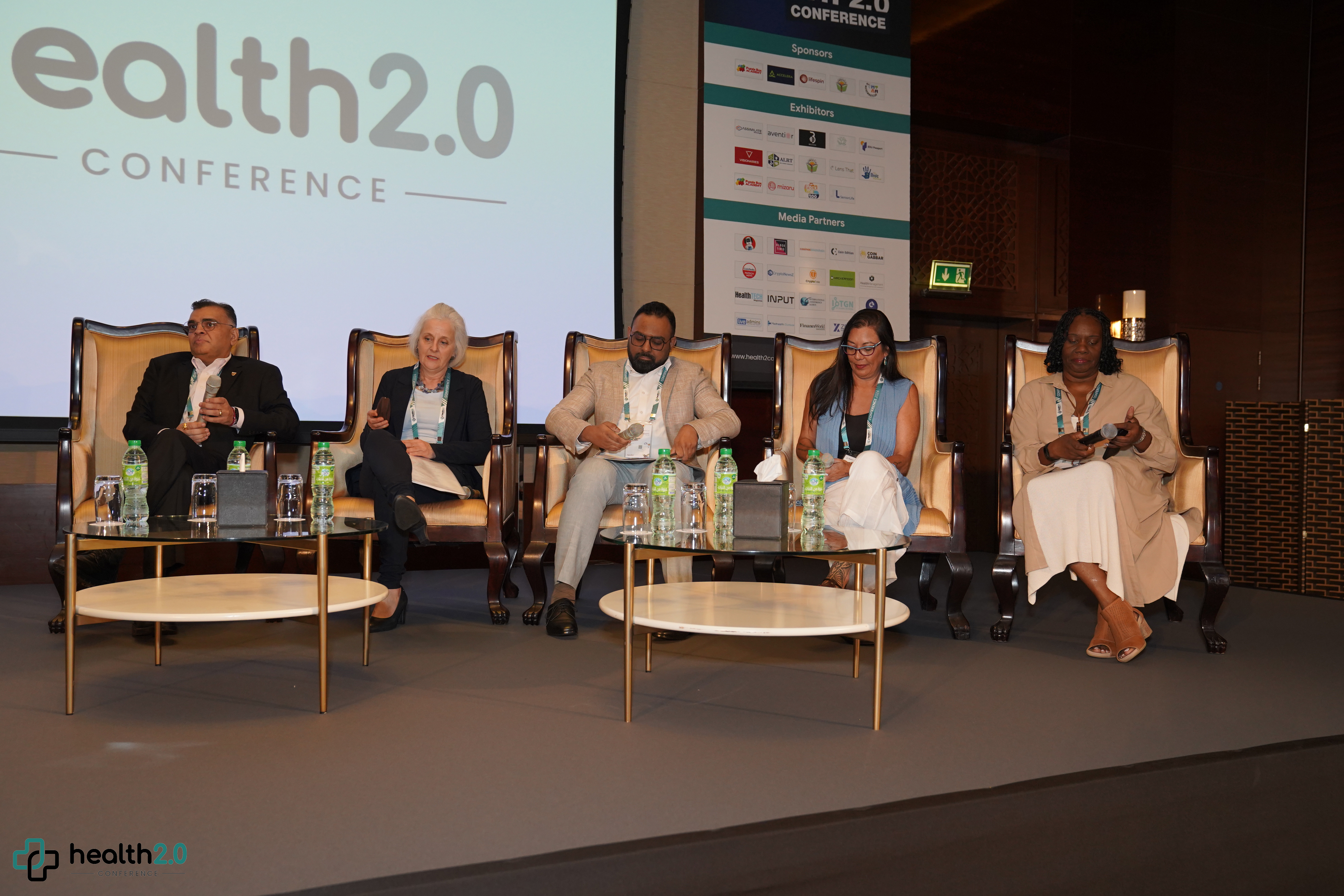Health 2.0 Conference Highlights How AI & Precision Medicine Are Transforming Cancer Care
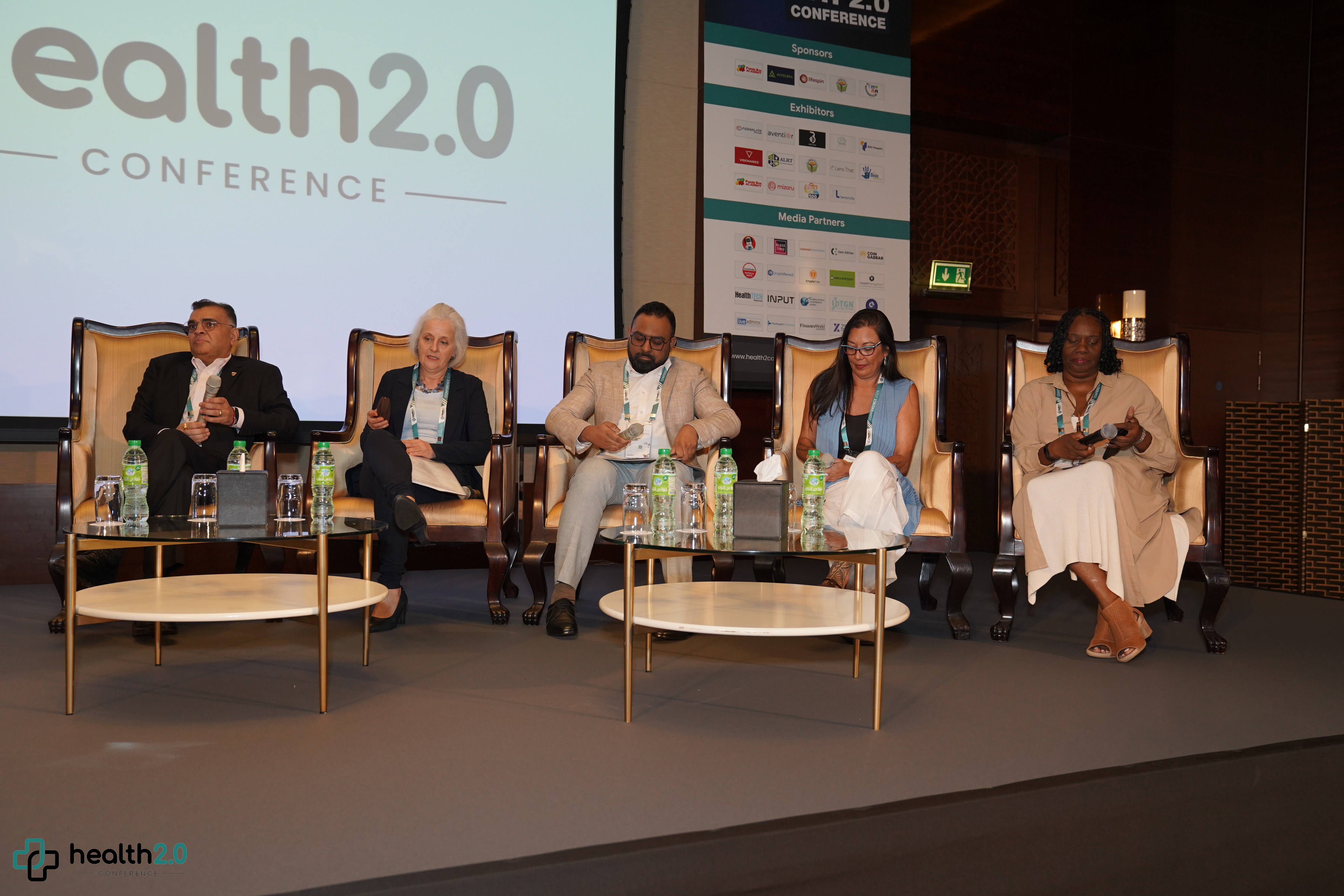
Strong 8k brings an ultra-HD IPTV experience to your living room and your pocket.
What if cancer could be detected earlier, treated more precisely, and managed with fewer side effects? With artificial intelligence and precision medicine, this vision is becoming a reality. These technologies transform cancer care by improving diagnosis, personalizing treatments, and accelerating drug discovery.
Experts at the Health 2.0 Conference, one of the leading healthcare events in Dubai, are exploring how artificial intelligence enhances medical imaging and treatment planning. They will also discuss how precision medicine tailors therapies based on genetic data, ensuring better outcomes with fewer side effects. These innovations are changing the future of cancer care. Let’s dive into how artificial intelligence and precision medicine reshape cancer treatment. From early detection to personalized care, it is faster and more targeted than ever.
The Limitations Of Traditional Cancer Treatments
Despite saving lives, conventional cancer treatments come with drawbacks that affect their success.
Harsh Side Effects: Chemotherapy and radiation target both cancerous and healthy cells, leading to nausea, fatigue, weakened immunity, and long-term organ damage. These side effects make recovery even more difficult for patients.
Limited Treatment Response: Many patients do not respond well to standard cancer treatments. Every cancer behaves differently, yet conventional therapies do not consider genetic variations.
Late Diagnosis Risks: When cancer is detected in advanced stages, treatment choices become fewer, and survival rates decline. Earlier detection could mean a better chance of recovery.
Artificial intelligence and precision medicine are tackling these challenges by making cancer care more targeted, effective, and personalized.
How Is Artificial Intelligence Advancing Cancer Detection?
Early cancer detection is critical to improving survival rates. Medical diagnosis is evolving with artificial intelligence, ensuring quicker and more reliable results.
Enhanced Medical Imaging: Artificial intelligence-powered imaging tools analyze X-rays, MRIs, and CT scans, detecting tumors earlier and with higher accuracy than human radiologists.
Smarter Biopsy Analysis: Machine learning models examine biopsy samples at a microscopic level, identifying cancerous cells with greater precision. This reduces misdiagnosis and helps doctors choose the most effective treatment.
Predictive Cancer Screening: Artificial intelligence processes thousands of medical records, identifying patients at higher risk of developing cancer. This allows doctors to recommend proactive screening and early interventions.
How Is Precision Medicine Personalizing Cancer Treatment?
No two cancers are alike, and precision medicine customizes treatments for the best possible outcomes. This approach improves effectiveness and minimizes harmful side effects.
Genetic-Based Treatments: Doctors use genomic sequencing to analyze a patient’s DNA, identifying genetic mutations that drive cancer growth. This allows for targeted treatment plans.
Targeted Therapies: Unlike chemotherapy, which attacks all rapidly dividing cells, targeted treatments focus only on cancerous mutations. This precision reduces damage to healthy cells and improves treatment outcomes.
Immunotherapy Advancements: Immunotherapy helps the body’s immune system recognize and attack cancer cells. Some treatments even block the ability of tumors to evade detection by immune cells.
CAR-T Cell Therapy Breakthroughs: This innovative method enhances immune cells, enabling them to detect and destroy cancer. It has shown remarkable success in treating blood cancers like leukemia and lymphoma.
To learn more about these innovations, attend the Health 2.0 Conference, one of the healthcare events in Dubai, where industry leaders share groundbreaking research. Experts will discuss the latest advancements in precision medicine and artificial intelligence-driven cancer care.
How Is Artificial Intelligence Accelerating Cancer Drug Discovery?
The path to developing new cancer drugs is both time-consuming and resource-intensive. Artificial intelligence accelerates drug discovery by making research and clinical trials more efficient.
AI-Powered Drug Screening: Machine learning algorithms analyze millions of molecular structures to find the best drug candidates for cancer treatment. This speeds up the process by minimizing trial and error.
Smarter Drug Design: Pharmaceutical companies use artificial intelligence to create highly targeted drugs with fewer side effects, improving patient safety and treatment effectiveness.
Faster Clinical Trial Enrollment: Artificial intelligence scans medical databases to match patients with clinical trials based on their medical history and genetic profile. This helps researchers test new treatments more efficiently.
Higher Drug Success Rates: Predictive analytics analyze real-world patient data to forecast how different groups will respond to new cancer drugs before they reach large-scale trials.
Experts at top healthcare events in 2025 are exploring how artificial intelligence is reshaping cancer drug development. With faster, more effective research, these advancements are making cancer treatment more promising than ever.
How Is Artificial Intelligence Enhancing Cancer Patient Care?
Artificial intelligence is improving the way cancer patients manage their health, stay on track with treatment, and receive continuous monitoring.
Virtual Assistants For Patient Support: Artificial intelligence-powered chatbots and virtual assistants provide round-the-clock guidance, answering patient questions and offering symptom management strategies.
Wearable Technology For Real-Time Monitoring: Smartwatches and biosensors track a patient’s vitals, alerting doctors to irregularities before complications arise. This allows for timely medical intervention.
AI-driven Treatment Adherence: Many patients struggle to follow complex treatment plans. Artificial intelligence-powered mobile apps send reminders for medications, track symptoms, and alert caregivers to any concerns.
Remote Healthcare Solutions: By enabling remote monitoring, artificial intelligence keeps patients connected to healthcare providers with fewer hospital visits.
Next-Generation Patient Care Platforms: By using artificial intelligence, Tempus and Owkin create personalized care plans that improve cancer patients' quality of life.
Discussions on top healthcare events in 2025 are focusing on how artificial intelligence is transforming oncology. Experts are highlighting its role in enhancing patient care, reducing treatment barriers, and improving outcomes, setting new standards for cancer care worldwide.
Challenges In Adopting AI & Precision Medicine In Cancer Care
While artificial intelligence and precision medicine have the potential to revolutionize cancer care, several challenges need to be addressed for widespread adoption.
Patient Data Security Concerns: Artificial intelligence requires vast medical data, raising concerns about data breaches and patient privacy. Secure encryption and strict regulations are needed to protect sensitive health information.
Bias In AI Algorithms: If artificial intelligence models are trained on non-diverse datasets, they may not provide accurate diagnoses or treatment recommendations for certain populations. Researchers must ensure artificial intelligence models are inclusive and unbiased.
High Cost Of Advanced Treatments: Many precision medicine therapies, including genomic sequencing and targeted treatments, remain expensive and inaccessible to many patients. Lowering costs and improving insurance coverage will be crucial.
Regulatory Approval Barriers: Strict safety and efficacy standards must be met before artificial intelligence-driven treatments gain approval. This can slow down the integration of artificial intelligence into mainstream healthcare.
Conclusion
Artificial intelligence and precision medicine are redefining cancer care. These innovations make detection faster, treatments more precise, and drug discovery more efficient. Experts at the Health 2.0 Conference, one of the leading healthcare events in Dubai, will explore how these advancements are transforming oncology.
With artificial intelligence enhancing diagnosis and precision medicine tailoring therapies, cancer treatment is becoming more effective and personalized. The future of cancer care is here, bringing better outcomes and new hope for patients worldwide.
Note: IndiBlogHub features both user-submitted and editorial content. We do not verify third-party contributions. Read our Disclaimer and Privacy Policyfor details.

